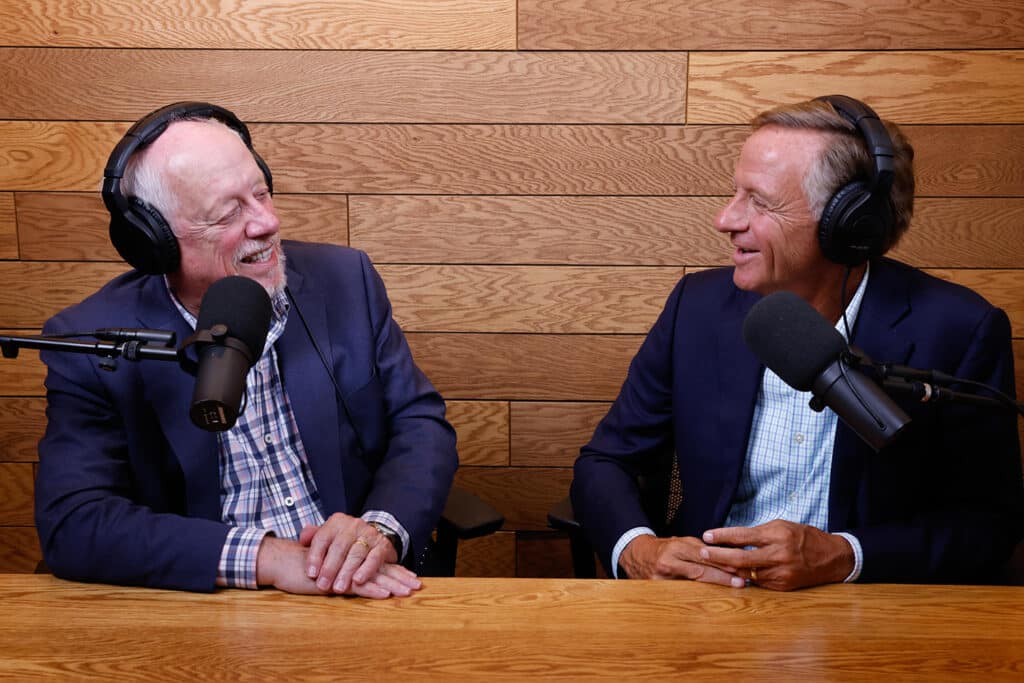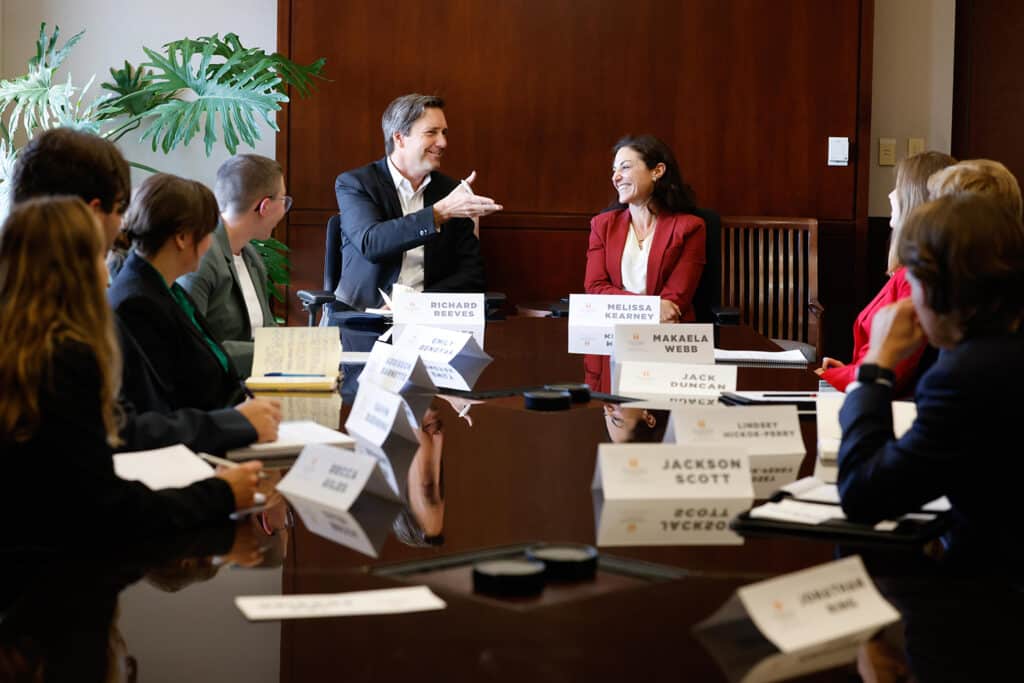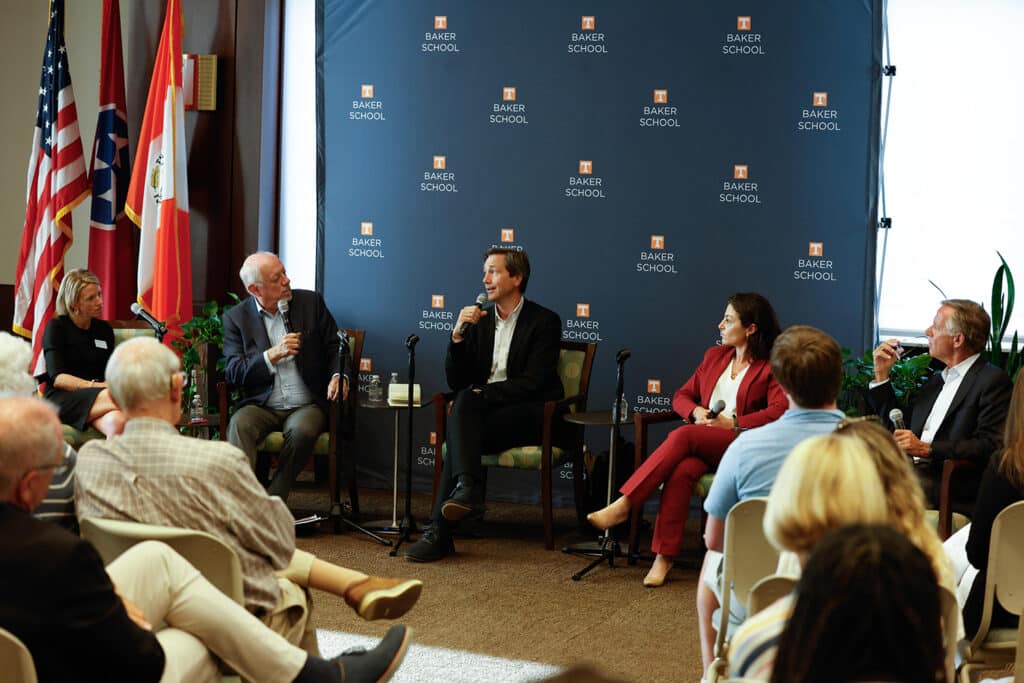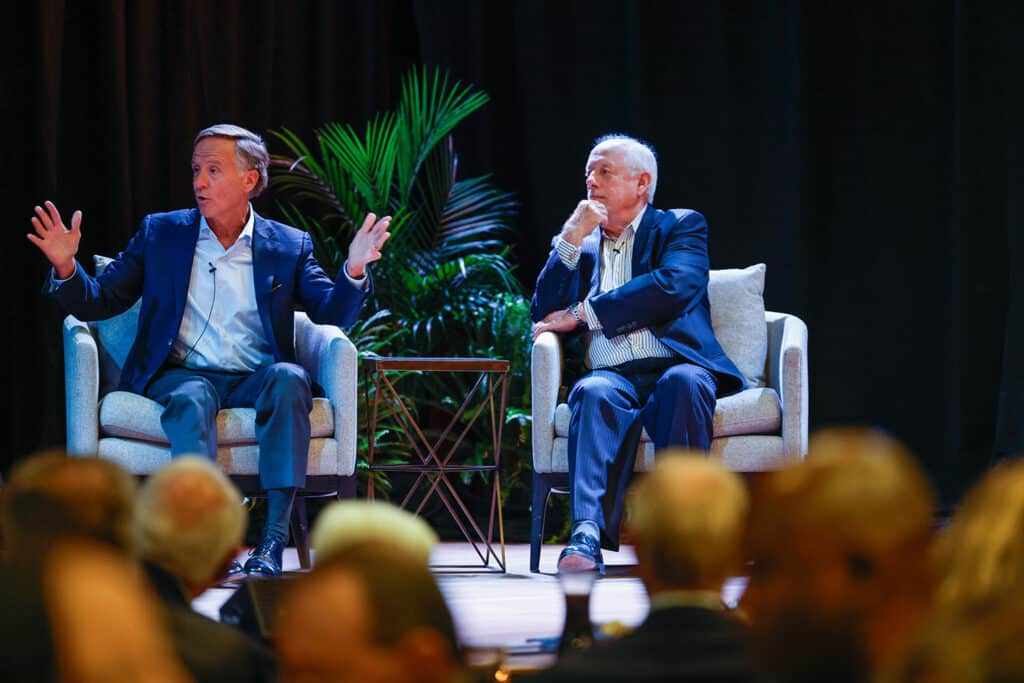You Might Be Right Podcast Delivers Curious Conversations in Season 3
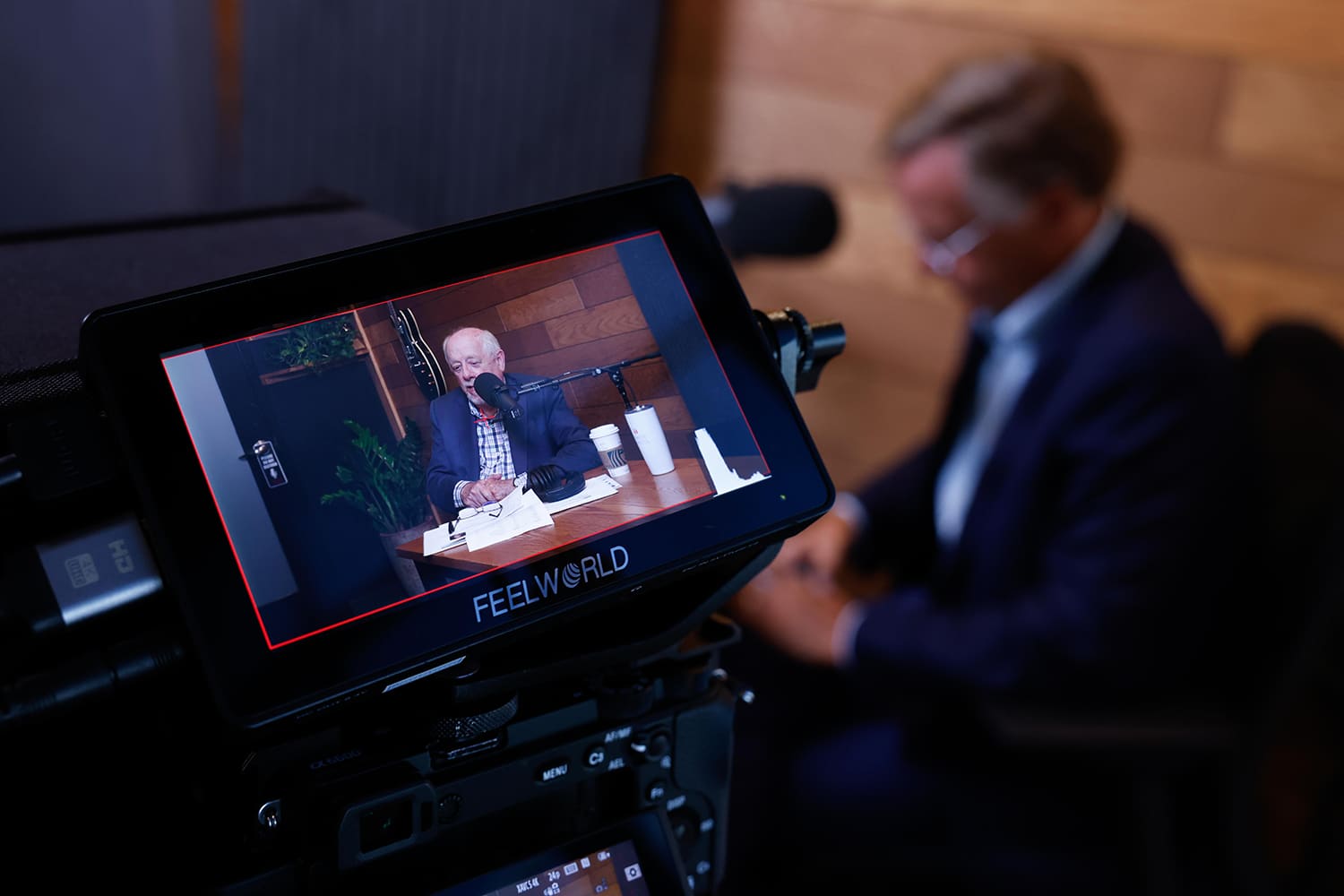
This season on the podcast You Might Be Right, former Governors Bill Haslam and Phil Bredesen talk to secretaries of state in Georgia and Michigan about election security, former college admissions officials and legal analysts about affirmative action, and academic scholars about how artificial intelligence will impact democracy.
Conversations like these are what built the podcast’s reputation for taking on critical issues with humility, curiosity, and thoughtful dialogue. They are also a model for the civility and respectful debate that our country needs now more than ever.
Led by two of Tennessee’s most respected political leaders, You Might Be Right is a product of what is now the Baker School of Public Policy and Public Affairs. The podcast embodies both the mission of the school, which transitioned from being a public policy center to a degree-granting academic unit in July, and the legacy of its eponym.
Senator Howard H. Baker Jr., who also served as U.S. ambassador to Japan and White House chief of staff to President Ronald Reagan, was known as the Great Conciliator because of his willingness to listen and his ability to broker compromises. Baker, a graduate of the UT College of Law, was known to quote his own father, a US congressman, who preached the importance of going through life with “the assumption that the other fellow might be right.”
That openness to the views of others is so often missing in today’s politics, and it’s the mission of the Baker School and, more specifically, the Institute of American Civics—which launched last year and is housed in the school—to bring that level of civil discourse back to our communities. The work begins on campus but extends into the community through lectures, workshops, and, of course, initiatives like the podcast.
You Might Be Right has seen tremendous success since it launched last fall—ranking among the top 10 politics podcasts and garnering national attention and acclaim. Shortly after its launch, CNN’s Jake Tapper invited the hosts onto his show to discuss the importance of civil discourse in democracy.
Governors Haslam and Bredesen have also recorded live shows in front of an audience here at the Baker School and at iconic locations such as George Washington’s Mount Vernon outside of Washington, D.C., and the National Civil Rights Museum in Memphis.
I am thankful to them for their dedication to the university and to the future of our country. The conversations they have each week are what we need to move forward.
If you have not done so, I encourage you to listen to an episode on the Baker School website.
